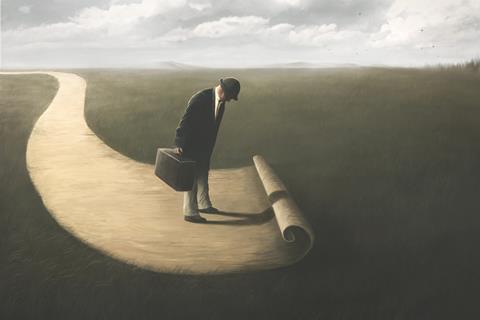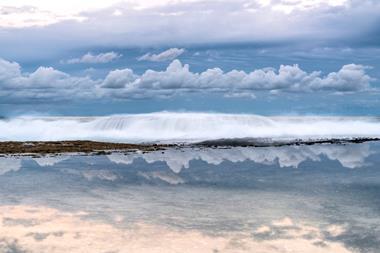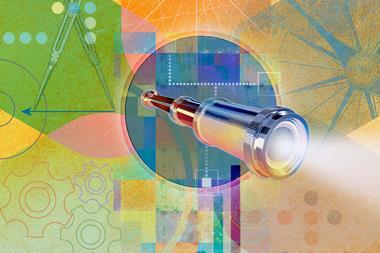While the rate of discoveries in any field may slow over time, the frontier creeps ever further
I’ve been making a living for the last 35 years (more or less) by discovering things (more or less). I would guess that many readers of this column are doing something similar, or doing work closely adjacent to the whole scientific enterprise. Finding out new things about nature’s workings and applying these to our wants and needs is such a feature of life in the industrialised world that it’s easy to forget that for most of human history there was (broadly speaking) no organised scientific enterprise at all. Things certainly did get discovered – fire, agriculture, the wheel, ironworking, shipbuilding, gunpowder and all the rest – but these things happened far more slowly and haphazardly. As David Wootton shows in The Invention of Science, most languages did not even have words for concepts like ‘experiment’, and some cultures considered any such work to be useless at best and an outright affront to the gods at worst.

We’re all much more used to science and scientific discovery now, although some of the bizarre conspiracy theories that circulated during the Covid-19 pandemic showed that not everyone is quite reconciled yet. So it might seem strange to bring this up, but it’s worth wondering what the rate of all that discovery is really like over time. Vannevar Bush famously called science the Endless Frontier, and he may well have been right. But that phrase comes with no guarantees that this frontier will remain endlessly accessible.
One factor is obvious: discoveries can only be made once for the first time. That is far more of a feature than a bug, naturally, because one of the key aspects of science is the expanding body of knowledge that can be built on. But it does mean that what used to be the frontier gradually becomes settled territory, so that anyone looking to make really new discoveries will probably have to look elsewhere. In many fields, it also means that there is more background knowledge to travel through on the way. Opinions on that problem vary: Richard Feynman famously tried to avoid reading the literature in whatever new field he began to work in, preferring to think from first principles. But Feynmans are rare, and most of us will find our time better used in understanding what others have been working on before us.
The rate of fundamental discoveries in any given area tends to slow down with time. But does this mean that the overall discovery rate has to slow down?
All this unsurprisingly means that the rate of fundamental discoveries in any given area tends to slow down with time. But does this mean that the overall discovery rate has to slow down in a similar manner? Here’s where the arguing starts. Some years ago, science writer John Horgan published The End of Science, arguing that we were in fact in an era of diminishing returns. This did not go over well with a lot of people, and I recall being made rather angry and uncomfortable by the book’s ideas. But there’s a case to be made that in many research areas we are doing more and more work (and spending more and more money) while discovering things more slowly. In my own field of drug discovery, Jack Scannell published a famous paper on what he called ‘Eroom’s Law’ (a reversal of Moore’s Law, which observes that the number of transistors on an integrated circuit doubles about every two years), and pointed out that the drug industry was – over the years – constantly spending more R&D money just to keep the rate of drug approvals about where it had always been.
Here’s the counter-argument, though. Horgan’s thesis rests on the idea that science as we have it now is giving us an accurate (and reasonably complete?) picture of the physical world and its laws, with mainly details left to be filled in. But people have thought this before, only to be proven very wrong. Indeed, not long after The End of Science came out, the very well-theorised-and-funded field of cosmology (to pick one example) was upended by the discovery that the expansion of the universe was (contrary to anyone’s expectations) actually accelerating. In drug discovery there are huge and obvious areas of darkness, starting with the workings of the brain and the immune system. In general, if we really were nearing the end of drug discovery, we wouldn’t still be looking at an 85% failure rate in clinical trials. Would we?
Some ‘end of science’ advocates get around these objections by saying that the answers to such questions may well be unknowable and beyond the reach of scientific discovery at all. This seems to me to be special pleading and an unjustified redrawing of the boundaries. I can well believe that every research field goes through a Heroic Age, where great discoveries are made quickly, and that in each case these eras never come again. But I still can’t believe that we’ve come to the end of things, either. That’s too far a leap for me to make, because there is still so much that I know I don’t know.
References
J W Scannell et al, Nat. Rev. Drug Discov., 2012, 11, 191 (DOI: 10.1038/nrd3681)

















1 Reader's comment